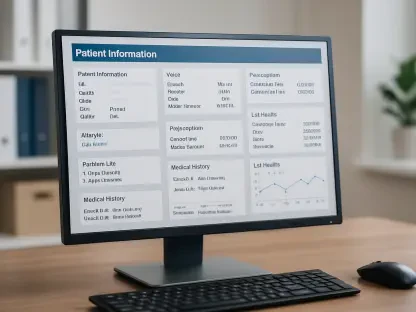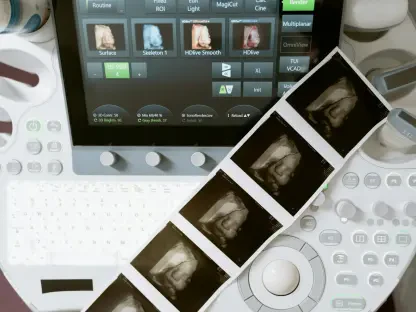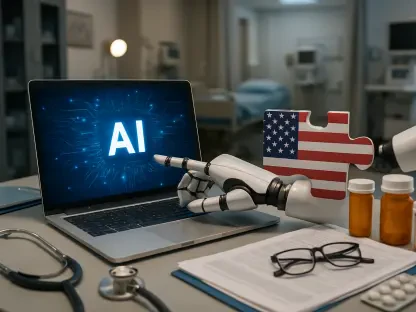The healthcare industry is undergoing a major transformation driven by digital innovations, setting the stage for a more efficient and accessible system. Digital health technologies, such as telemedicine and mobile health apps, are reshaping how patients and providers interact, breaking barriers that once made healthcare delivery cumbersome. These advancements are especially beneficial in reducing travel time and easing away personal commitments, providing communities with unprecedented access to medical care. The integration of AI-driven diagnostics promises even greater efficiency, offering rapid and accurate data analysis that aids physicians in making informed decisions. The culmination of these tools fundamentally changes the healthcare paradigm, making it not only more accessible but also more personalized and effective.
Telemedicine and Its Impact
Telemedicine, one of the groundbreaking digital health technologies, has proven to be a game-changer in the way medical services are delivered. It allows patients to consult with healthcare providers remotely, which significantly reduces the need for in-person visits to clinics or hospitals. With travel constraints removed, patients can more easily fit medical consultations into their hectic schedules, thus enhancing patient compliance and follow-up rates. Telemedicine also expands the reach of healthcare services to rural and underserved areas, where access to healthcare professionals can be limited. This shift not only ensures that more people receive timely medical attention but also alleviates the pressure on overburdened healthcare facilities.
Beyond convenience, telemedicine facilitates continuous monitoring of chronic conditions through wearable health devices and mobile health apps. These tools enable real-time data collection, allowing healthcare providers to track a patient’s health metrics consistently. Patients can manage conditions such as diabetes, hypertension, or cardiovascular diseases more effectively with regular digital check-ins, reducing the likelihood of complications and emergency interventions. This long-term management capability is invaluable in improving overall health outcomes, making telemedicine an indispensable part of modern healthcare solutions. As digital connectivity becomes more widespread, the adoption of telemedicine is expected to grow, further integrating remote care as a standard practice in medical services.
AI-Driven Diagnostics
The incorporation of AI-driven diagnostics represents a monumental leap in enhancing the diagnostic capabilities of healthcare systems. These tools utilize machine learning algorithms to analyze vast datasets rapidly, identifying patterns that may elude traditional diagnostic methods. Such precision is crucial in early disease detection, leading to faster interventions and improved treatment outcomes. For instance, AI-driven platforms can analyze medical images to detect abnormalities such as tumors or lesions with high accuracy, assisting radiologists in making more confident diagnoses. This not only speeds up the diagnostic process but also enhances its reliability, reducing the incidence of human error and ensuring better patient care.
Another significant aspect of AI-driven diagnostics is its role in personalizing treatment plans. By analyzing patient data comprehensively, AI systems can recommend tailored treatment options that consider an individual’s unique genetic makeup, medical history, and lifestyle factors. This personalized approach contrasts with the one-size-fits-all methodology of traditional medicine, offering therapies that are more effective and less likely to cause adverse reactions. In addition, AI-driven diagnostics can continuously learn and adapt, improving their accuracy and effectiveness over time. As AI technologies evolve, their integration into healthcare promises to usher in a new era of precision medicine, embedded within routine clinical practice.
Addressing Challenges and Ensuring Privacy
Despite the immense benefits, the widespread adoption of digital health technologies comes with its own set of challenges, particularly in terms of data privacy and security. Ensuring that patient data is protected while it is collected, stored, and transmitted is paramount. Safeguarding sensitive health information requires robust cybersecurity measures to prevent breaches and unauthorized access. Innovations in encryption and secure data handling practices are critical in mitigating these risks. Moreover, creating a regulatory framework that governs the ethical use of AI and digital health tools will be essential to protect patient rights and promote trust in these technologies.
Infrastructure improvements are also necessary to support the full potential of digital health solutions. High-speed internet and reliable connectivity are foundational for telemedicine and remote monitoring technologies to work effectively. Investment in healthcare infrastructure, particularly in underserved and rural areas, will be imperative to bridge existing gaps and provide equitable access to digital health services. Collaborative efforts between governments, healthcare providers, and tech companies can foster an environment where these innovations thrive, ensuring they benefit all segments of the population.
Future Prospects and Continued Innovation
Integrating AI-driven diagnostics marks a significant advancement in boosting the diagnostic capabilities of healthcare systems. These advanced tools use machine learning algorithms to quickly analyze large datasets, recognizing patterns that traditional methods might miss. This precise analysis is crucial for early disease detection, enabling faster intervention and better treatment outcomes. For example, AI platforms can accurately analyze medical images to find abnormalities like tumors or lesions, aiding radiologists in making more accurate diagnoses. This not only speeds up the diagnostic process but also improves its reliability, reducing human error and ensuring better patient care.
Another key benefit of AI-driven diagnostics is its ability to personalize treatment plans. By thoroughly analyzing patient data, AI systems can suggest customized treatment options that consider a person’s genetic makeup, medical history, and lifestyle factors. This personalized approach is more effective and less likely to cause adverse reactions compared to the one-size-fits-all approach of traditional medicine. Additionally, AI diagnostics can continuously learn and adapt, enhancing their accuracy over time. As AI technology advances, incorporating it into healthcare promises a new era of precision medicine within everyday clinical practice.









